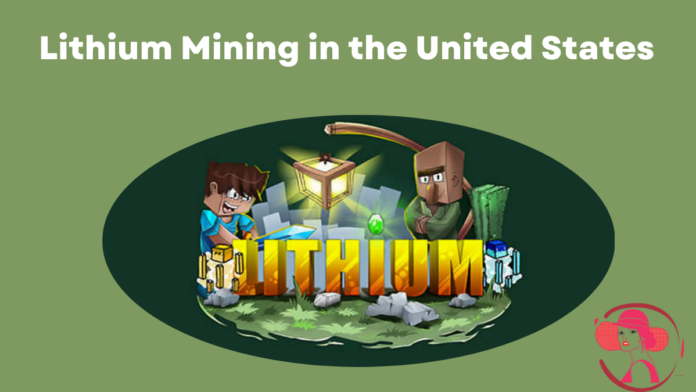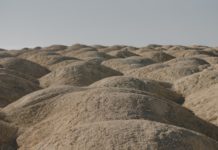Lithium, an essential alkali metal, is crucial in the push towards renewable energy. Lithium-ion batteries, favored for their longevity and efficiency, power electric cars and solar storage systems.
Despite its significance, the United States has only one active lithium mine. Though the country holds substantial lithium reserves, estimated at 9.1 million tons, developing new mines faces delays due to cheaper imports and local resistance.
Here, we delve into the state of U.S. lithium mining and its future outlook:
Current state of lithium mine in the U.S.
Lithium is used in various products, from laptops and cell phones to electric vehicle batteries. Currently, the U.S. has only one operational lithium mine: the Albemarle Silver Peak Mine in Nevada.
This mine uses brine extraction, sourcing lithium from beneath dry lake beds in desert regions. Although the U.S. possesses significant lithium reserves, plans for new mines in Nevada, California, Arkansas, and North Carolina are on hold due to various challenges.
Challenges facing U.S. lithium mining
Several factors contribute to the stalling of new lithium mining projects in the U.S. One major issue is the cost-effectiveness of importing lithium compared to domestic mining.
Cheaper lithium from South America and Australia often outweighs the benefits of local extraction. Additionally, there is strong local opposition due to environmental concerns and the impact on native lands.
Key Points:
- The U.S. imports most of its lithium, primarily from South America and Australia.
- Lithium processing typically occurs in China, adding extra steps and emissions.
- Long supply chains can lead to delays and increased costs, as highlighted by the pandemic.
Environmental concerns of lithium mining
Traditional lithium mining methods pose significant environmental risks. Mining from rock and brine consumes large amounts of groundwater, disrupts land, and emits carbon dioxide.
These processes can pollute water sources and reduce water availability for local communities and ecosystems.
Key Points:
- Lithium mining requires extensive land use and groundwater.
- The mining process emits greenhouse gases and can lead to water pollution.
- Large surface areas are needed for water evaporation in brine extraction.
Alternatives to Lithium Mining
Currently, there are no viable alternatives to traditional lithium mining. However, lithium recycling is emerging as a potential solution. Recycling lithium from old electronics can reduce the need for new mining.
Although current recycling methods are energy-intensive and involve harsh chemicals, new techniques are being developed to improve efficiency and battery performance.
Key Points:
- Lithium recycling can supplement traditional mining methods.
- Innovative recycling techniques are being developed to use less energy.
- Scaling up recycling efforts is crucial for a sustainable lithium supply chain.
Conclusion
Lithium mining in the United States is at a crossroads. While the country has significant reserves, developing new mines is challenging. Innovations like geothermal lithium extraction and improved recycling methods offer hope for a more sustainable future.
Lithium will remain a critical resource as the world shifts towards renewable energy, and finding balanced solutions to mining challenges is essential.
Some Questions
What is the current state of lithium mining in the U.S.?
The U.S. has one active lithium mine, the Albemarle Silver Peak Mine in Nevada. Plans for new mines are in progress but face several challenges.
Why is lithium important for renewable energy?
Lithium is a key component in lithium-ion batteries, which store energy for devices and renewable energy systems and ensure a stable supply.
What are the environmental impacts of lithium mining?
Traditional lithium mining methods use significant groundwater, disrupt land, and emit greenhouse gases, leading to environmental concerns.
Read More:















